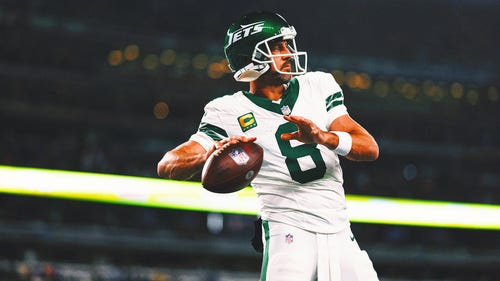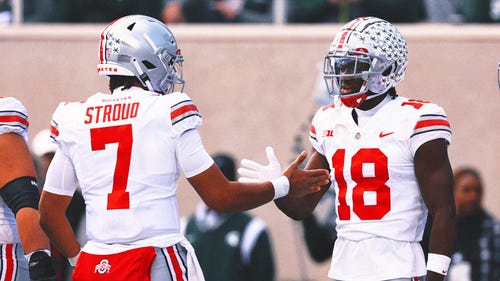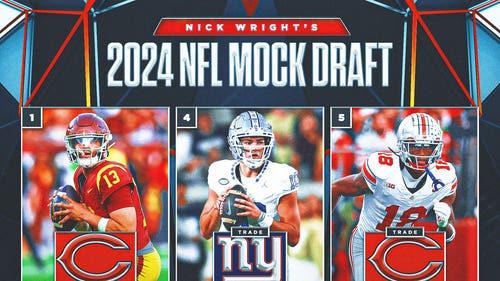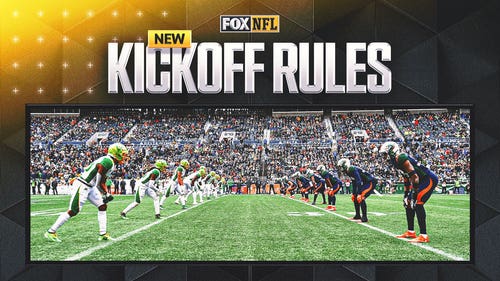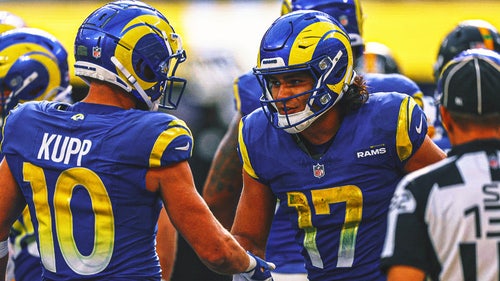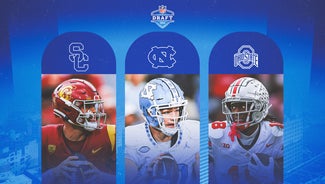
Momentum leading to new NFL CBA
With momentum seemingly rolling toward a new collective bargaining agreement — one that would permit for training camps to open on time at the end of July and allow a full, 16-game regular season — "optimism" appeared to be the term which best characterized the special owners meeting that convened in Chicago on Tuesday.
For the most part, the owners seemed to like what they heard from commissioner Roger Goodell, a leader clearly under pressure as the lockout neared the 100-day mark, and from the owners who participated in the negotiations that dissolved the inertia of the first three-plus months of the work stoppage.
Almost as important, they liked what they didn't hear.
Much dissent.
"Obviously, there are some people who don't agree with some of what was laid out," said one AFC owner of the foundation for the agreement that was described in detail to the membership on Tuesday. "But it doesn't look like there's enough (opposition) to stop the train."
As reported for the past several days by many media outlets, including The Sports Xchange, there are some owners, including at least two from AFC franchises, who are not in favor of some of the presumptive tenets of an agreement framework. According to three owners who spoke to The Sports Xchange within an hour of the meeting adjourning, those owners have not dramatically shifted their opinions.
But again, it does not appear there is sufficient opposition to derail the process or to block approval of a CBA if current momentum leads to an agreement. New England's Bob Kraft, certainly one of the most influential owners and noted as a man who has Goodell's ear, allowed there is "still a lot of work ahead of us." Still, much of the heavy lifting, particularly in terms of revenue split, seems to be accomplished.
Owners and player representatives are expected to gather again sometime this week for the fourth round of what have been characterized as "secret" meetings.
There were no formal votes taken Tuesday, not even the kind of unofficial "straw polls" that are a big part of such meetings, but one owner acknowledged he was "kind of counting noses," and discerned four or five opponents "at most."
Approval of a CBA requires a 3/4 vote of the membership, meaning only nine "no" votes are needed to squelch a deal.
Said one NFC owner: "The purpose of the meeting was to get things out on the table, but it sure looks like there's nothing close to nine ('no') votes."
Few ventured a guess as to timeframe, but several owners seemed to be operating under the assumption that an accord could come in the next 2-3 weeks. None of the owners who spoke to The Sports Xchange would estimate when veteran free agency might begin, but all agreed it was helpful that several teams brought general managers, football operations directors or cap specialists to Chicago, and that the so-called "football men" were allowed to offer their views on potential timeframes.
As first reported by Chris Mortensen of ESPN, the proposed CBA would provide players with 48 percent of all revenues. It would do away with "designated revenue" income and remove the $1 billion in credits owners currently take off the top of the $9 billion-plus in revenues generated by the league.
Owners were seeking an additional $1 billion credit and have apparently done away with that.
While that appears to be a reduction from the 60 percent split that has long been used to describe the players' share, the actual number was 53-54 percent, after the owners' credits were calculated. Under the terms presented Tuesday, players would actually share in a bigger piece of the pie.
Also key is that franchises would be required to spend 100 percent, or close to it, of that year's salary cap, in terms of real cash expenditures. The salary cap essentially is a bookkeeping number — one that can be massaged up or down with several of the mechanisms available to teams — and there have been several clubs whose "real" payrolls have fallen short of the cap number.
Players would qualify for unrestricted free agency after four accrued seasons, which basically turns back the clock to pre-2010 levels. Last season, as a function of the "uncapped" year, players needed six seasons for unrestricted free agency.
An 18-game season would be able to be negotiated, but would not be part of an accord with the players. The league, according to the outline presented Tuesday, would market a new single-game Thursday night schedule, beginning in 2012.
Bidding on the Thursday night schedule would be one cornerstone of what the NFL and players agree could be skyrocketing revenues in the next decade.
It is generally assumed a rookie wage scale will be part of a new CBA, since both sides agree it is expedient, but that is one of several elements still being negotiated.
Len Pasquarelli is a Senior NFL Writer for The Sports Xchange. He has covered the NFL for 33 years and is a member of the Pro Football Hall of Fame selection committee. His NFL coverage earned recognition as the winner of the McCann Award for distinguished reporting in 2008.






































































































































